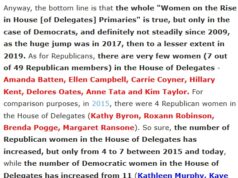
So, who’s right? Are “spending” and “investment” synonymous? To answer this question, let’s go back for a moment to Macroeconomics 101, where we learned that national income was comprised of four things: Consumption (C) + Investment (I) + Government Spending (G) + Net Exports (X-M). Now, obviously, “C” and “I” are not the same thing — “consumption” consists of “durable,” “non-durable,” and “services” spending by households and individuals, while “investment” consists of total spending by businesses on plant and equipment.
As for government spending, that consists of three major components: 1) “acquisition of goods and services for current use to directly satisfy individual or collective needs of the members of the community,” 2) “acquisition of goods and services intended to create future benefits, such as infrastructure investment or research spending, is classed as government investment;” and 3) “transfer payments” (e.g., Social Security).
It’s the difference between #1 and #2 under “government spending” that’s at issue here. Except as (meaningless) political rhetoric, lumping them together clearly makes no sense, which is why economists separate them out. And it’s exactly for this reason that people like Mitch McConnell and Eric Cantor really could use a refresher course in economics, because the question isn’t whether “spending” and “investment” are the same thing, as they most certainly are not. The question is, how much money do we, as a nation, want to put into “acquisition of goods and services intended to create future benefits, such as infrastructure investment or research spending?”
Personally, I’d argue that we shouldn’t skimp on investing in our nation’s future, whether we’re talking about “physical capital,” like building the “smart grids” and high-speed rail networks of the future, or “human capital,” which is basically aiming to have the best educated population – and labor force – in the world. We all invest in ourselves, the only questions are how much we invest, when we invest, and what types of investment we pursue. For Person A, it might be tilted more towards education, while for Person B it might be more towards physical infrastructure, and that’s a debate well worth having. But that’s not the debate Republicans like Eric Cantor and Mitch McDonnell are engaging in when they falsely equate “spending” and “investment.” That’s just stupid.
P.S. With regard to “spending” in general, that’s another area where Cantor, Boehner, McConnell et al. could also use a refresher course in economics, because according to everything we know about how the economy works, the LAST thing you want to do in the midst of an economic downturn is slash government spending (“G”). Again, that’s just stupid.












